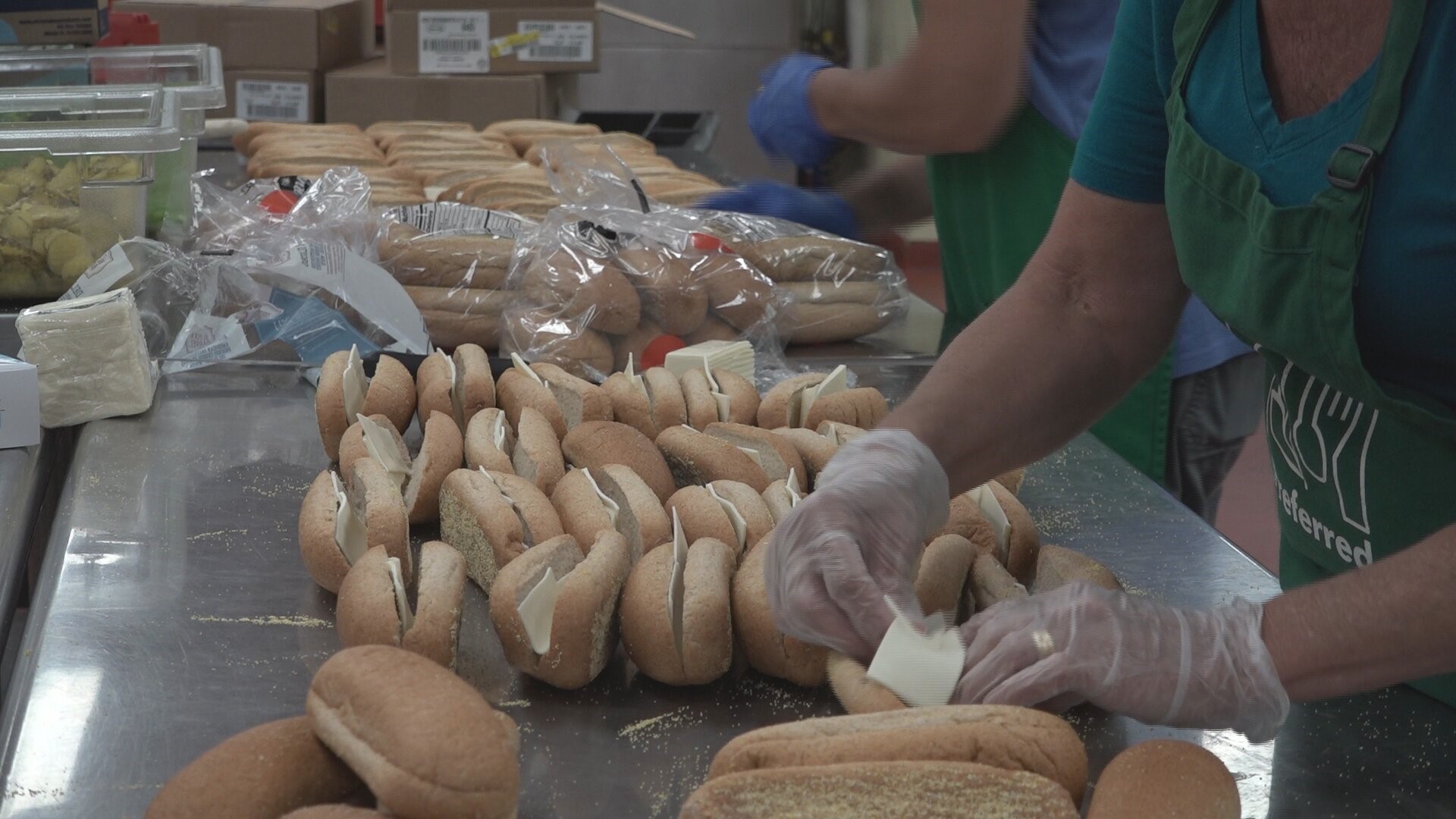PORTLAND, Maine — If a student doesn't have access to nutritious meals, it can be difficult for them to get the most out of their education. Now, Maine is one of two leaders nationwide addressing this issue, made possible by funding included in the updated budget bill signed into law by Gov. Janet Mills at the end of June.
This new law means starting in the 2022-2023 school year, Maine public schools will be required to provide school meals to all students for free, regardless of their family's income. The goal is to help eliminate stigma and help fight hunger in Maine, since some families that weren't traditionally eligible for free or reduced-price school meals may still need help -- especially because of tough economic situations brought on by the pandemic.
Last year during the pandemic, the federal government created a waiver that allowed all students to get school meals at no cost nationwide. That waiver has been extended through the 2021-2022 school year, which is why this law, specific to Maine, isn't going into effect until the next year. Students won't be required to take part -- they can still either bring their own lunches or purchase food a la carte.
In a statement after the budget bill was signed into law, the bill's primary sponsor Senate President Troy Jackson released a statement, saying in part:
"Maine children should be able to focus on learning math and playing with their friends, not an empty stomach. By providing free, nutritious school meals, no questions asked, we can ensure Maine kids can focus on being kids...No child should have to go to school hungry, especially not in this state. Between our coastal waters and acres of farmland, we can feed our kids, support our farmers and grow our economy. I hope other states will follow our lead."
Maine became the second state in the nation to pass a law like this, less than a day after California. The law essentially requires Maine to cover the difference between the federal reimbursement for school meals -- now, among free, reduced, and full-priced meals. Justin Strasburger, the executive director of Full Plates Full Potential (a nonprofit that authored the original bill), says this law has the potential to impact all 160,000 students in our state. The budget bill provides $10 million for this initiative, but Strasburger says the fiscal note came to $34 million -- so he expects advocates will need to ask for more money in next year's budget.
Advocates on the local and national levels say school meals are typically the most nutritious ones that students eat every day -- and good nutrition is essential to a good education.
"The reality is when you're hungry, when you have those kinds of things going through your head -- it doesn't allow you to concentrate. It doesn't allow you to focus," Strasburger expressed. "It's sort of like we're wasting the education on pieces of the equation. I mean, if we're trying to teach students who are too hungry to absorb information or process information, they're just not learning that."
"(Good nutrition) improves academic outcomes. (It) reduces trips to the nurse's office. It provides equity to all students," said Diane Pratt-Heavner, the spokesperson for the School Nutrition Association. "When every child can access a free meal at school, there's no shame or stigma associated with taking a meal."
The School Nutrition Association is advocating for Congress to provide free school meals to all students nationwide. According to the SNA, about 100,000 schools and institutions served school lunches to 29.6 million students each day pre-pandemic via the National School Lunch Program. That included 20.1 million free lunches, 1.7 million reduced-price lunches, and 7.7 million full-price lunches. A survey released via the SNA in May 2020 found 81 percent of responding school meal programs gave out grab-and-go meals when schools closed because of COVID-19. Pratt-Heavner says she's worried a return to full-price meals would be challenging for families.
"Throughout this pandemic, school meals have become such an important service for families across the country," said Pratt-Heavner.
Strasburger says the ultimate goal is to make sure no one needs to fill out a school meal application in Maine, but the state is not there yet. He says it's important that any Mainers planning to take part in the free school meal program fill out an application online now to demonstrate the need in Maine. You can find a link to an application by clicking here.

